A first-hand account of visiting church plants, heroes of faith in a Muslim context, and pioneering work among women, children, and ex-drug addicts.
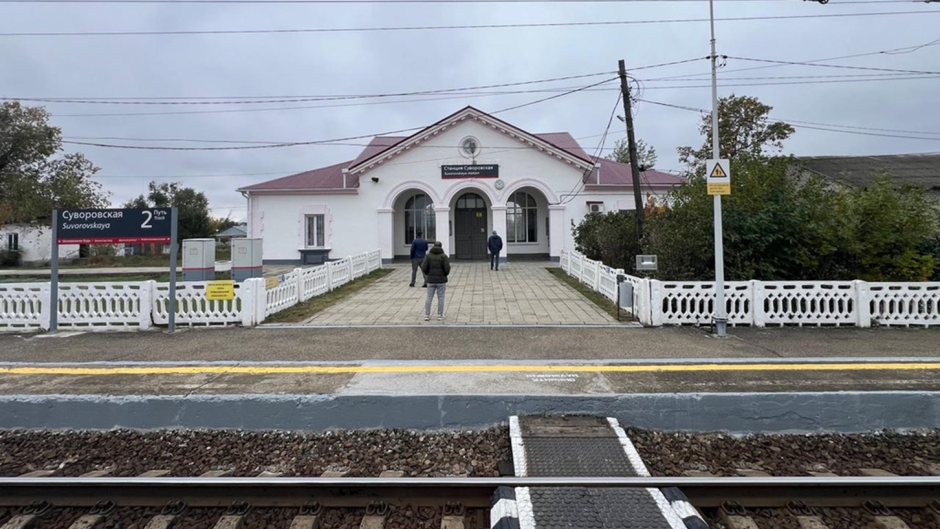 Suvorovskaya railroad station. It was from here that the German settlers of the area were deported to Siberia in 1941. / All photos: Johannes Reimer.
Suvorovskaya railroad station. It was from here that the German settlers of the area were deported to Siberia in 1941. / All photos: Johannes Reimer.
Just a few years ago, the largely Muslim-dominated Caucasus was considered an Islamic bastion. The few Christian peoples among the more than 100 ethnic groups in the region, such as the Armenians or Georgians, had resisted the pressure of Islamization for centuries, but had also barely gained a foothold in the firmly closed doors of the Muslim nations.
With the radicalization of Islam in Iran, Azerbaijan, Chechnya and among the peoples of Dagestan, a slow process of alienation of the population from Islam began. This was not how the majority of the population had imagined their lives and faith to be after all. And this opened up space for Christian missions. Today, most Caucasian peoples count believers who follow Jesus Christ and are openly professing their faith [1].
In October 2024, I traveled to the North Caucasus region together with the head of the German Caucasian Mission. We flew to Mineral'nyje Vody and traveled from there to Cherkessk in the autonomous republic of Karachayevo-Cherkessia. Here, the Association of Church if God of the Ark has founded several congregations and is carrying out successful missionary work, led by Bishop Garik Gundanian.
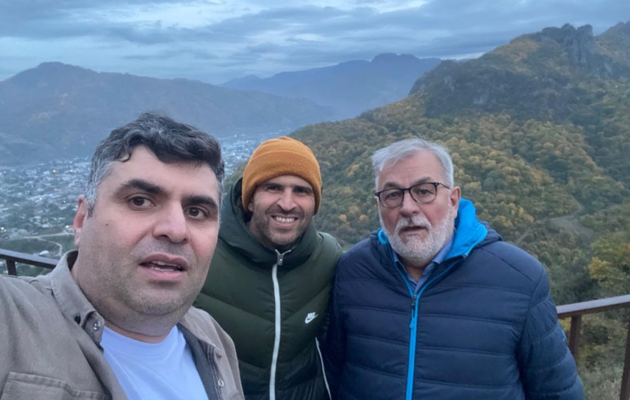
[photo_footer] Bishop Garik Gundanian with his guests from Germany against the backdrop of the Caucasian mountains. [/photo_footer]
We visited churches, looked at their projects and thanked the Lord for what He had done. The encounters with local Christian believers are reflected in this article. They should motivate readers to give thanks and to continue their intercession for this region.
For me myself, the trip also had a very personal connection, as my family originally came from this region. My ancestors founded entire villages here in the North Caucasus, my grandparents had lived here, and my father was born here as well.
They were all deported from here as Germans to northern Kazakhstan in 1941 and placed under the special commandery, which was tantamount to forced exile. Both my grandfathers lost their lives shortly after. Visiting the area where my father was born and my mother went to school, and staying at the Suvorovskaya railroad station from where my family was deported to the cold steppes of Siberia was a deeply emotional experience. At the same time, it brought me closer to the people in the region who, like my German ancestors, were driven from their homeland by Stalin and his regime in 1941.
My family history opened the door to fascinating conversations with Karachayans and Cherkessians. The story of both our ancestors’ suffering created a bond of friendship that transcended all national or religious boundaries. Alibek, a Karachayan, put it like this: “You are my brother – whatever happens, we’ll stick together.”
Even the first insight into the missionary work of the churches in the region made it clear: here, people were won over less by words than by deeds, rather by the lives of Christian believers. Wherever possible, Jesus followers are committed to the everyday needs of their neighbors and colleagues.
The rehabilitation centers for alcohol and drug addicted men and women have become a real attraction. The relatively small denomination runs five such centers in the Caucasus, largely without any support from abroad. Hundreds of users have gone through therapy over the last ten years. On average, 60% of them have been freed from their addiction.
Arsen, wo belongs to the Ossetin people, is one of them. Born in a Muslim family, he was on drugs for 17 years, then experienced liberation and now runs a rehabilitation center in Rodnitzki himself and is pastoring a growing congregation in the neighboring town. More than 100 people already attend his church services. And the rehab center cares for up to 40 people, mostly men, who come from all walks of life and seek help from the Christians.
State therapy centers are known far and wide for their ineffectiveness. Christians, on the other hand, offer real opportunities to get back on one’s feet and start a new life. This has long since spread throughout the country. “Hundreds of people ask us if they can come to us. And they are atheists, Orthodox Christians and Muslims,” Arsen tells us. “They know that we are Christians, that we read the Bible with our patients every day, pray and work together, and yet they still want to come to us because they find freedom here.”
The Rodnitzki Center can accommodate a maximum of 40 people in its few rooms. Arsen and his staff are praying for funds to acquire a vacant plot of land with a house in the immediate vicinity of the center. With this house they could double their capacity. But the price of 10,000 euros for the property is astronomically high for them. “The Lord will have to intervene,” he says, “as we don’t have that kind of money.”
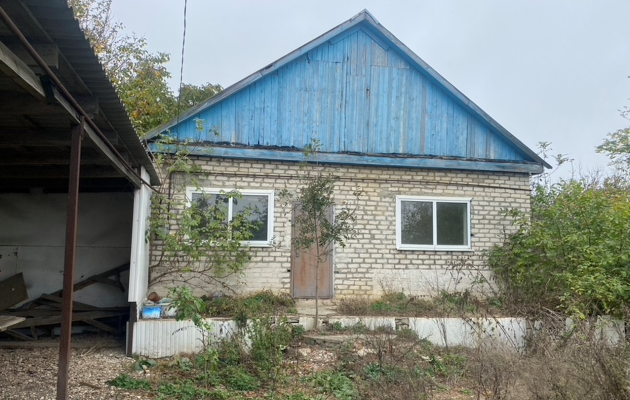
[photo_footer] Rehabilitation center in Rodnitzki.[/photo_footer]
It is often women who find faith in Jesus Christ from the misery of their Muslim families in the Caucasus. But their courageous step comes at a high cost. Their families renounce them, put them on the street and threaten them with death.
The young churches take these women in, hide them in their homes and do so at the risk of being attacked themselves. For years they have been praying for something like a safe house for women.
Last year, the communities finally succeeded in acquiring a plot of land, and the first house of this kind is now slowly being built here. 15 women are to find safe asylum here. The property is located in a suburb of a city that is mainly inhabited by Christians. This means that, given the circumstances, the refugees can be sure that they will remain safe here. And the social authorities support the cause. Women’s shelters are unknown in this part of the Russian Federation. Once again, Protestant believers will set new standards here.
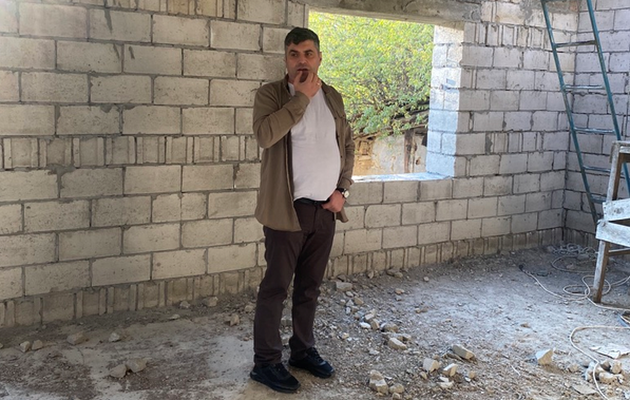
[photo_footer] The first women's safe house in the North Caucasus is being built here.[/photo_footer] Just in time for the onset of winter, we brought the local Christians a large donation from the Horsch Foundation and the Waldbröl Free Evangelical Church in Germany. This money will now be used to cover the roof, and then windows can be installed, and the interior work can begin. Those responsible estimate that a further 20,000 euros will be needed for this project. But they are courageous and trust that this money will also be given to them.
We visited many other social projects of the young Protestant movement in the Caucasus. The congregations look after the homeless, the elderly, the sick and the children.
And they experience God’s miracles time and again. For example, in the local old people’s home or hospital: “We bring the people concerned something to eat, or clothes if necessary, and give them our time,” says one of the pastors. “And of course we offer them our prayers. Muslims, in particular, are happy to accept our offer. Not only once have we seen God perform a miracle and heal them. As a rule, Muslims cannot be convinced of Christ with arguments and words, but they are attracted by concrete miracles. There is no such thing in their Islamic faith. And when Jesus touches them, they are soon ready to follow him consistently.”
This was also the case in the life of the doctor I call Gulnara here. After years of drug addiction and psychological stress, the prayer of the Christians restored her completely and so this Abassian woman decided to follow Jesus, one of the first of her people to do so.
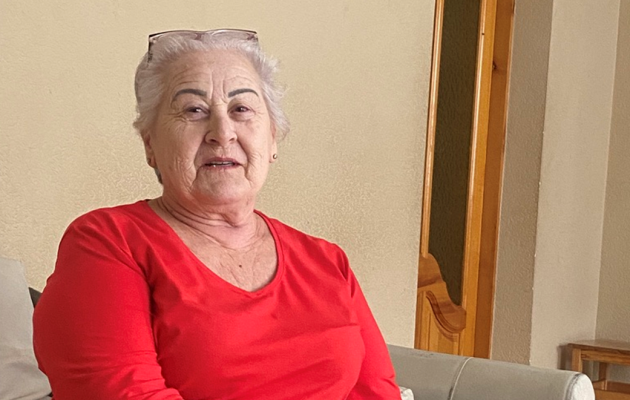
[photo_footer] Gulnara, one of the first Abassian Christians. [/photo_footer] Today, the 70-year-old is extremely active in pastoral care for women, prays for the people who visit her, and experiences again and again how God answers her prayers.
We visited Nikolai Doroshenko in the village of Ust-Dzigutta. The picturesque village in the middle of the mountains, which used to be called Jewish Village, is home to many mosques as well as a Christian community that was founded in the 1920s by Ivan Doroshenko, a Molokan who was exiled to the Caucasus by the Tsarist government along with many other members of this Orthodox sect.
At the beginning of the 20th century, there was a spiritual awakening among the Molokans. The first Evangelical Christians and Baptist congregations were established in the middle of the Molokan settlements. The Doroshenko family also found Jesus and joined an evangelical church.
Today, only a few Russians and no Jews live in Dzigutta. The Jewish village is now inhabited by Muslims, Cherkessians, Abassins and Karachayans. The many mosques proudly mark their dominance. Only very few people from these peoples have become Christians so far. A few have also joined the Ark community in Dzigutta.
Nikolai has lived in Ust-Dzigutta for many years. The 95-year-old is the last surviving son of Ivan Doroshenko, an active church founder in the Caucasus who was forced to flee to Germany in 1943 with the retreating German army from Russia.
Doroshenko had evangelized and founded churches in the Caucasus together with Ioann Mark Galustian (1899-1987). He can also be found in German archives as an active member of the Slavic Baptist Union. In the early 1950s, Doroshenko emigrated to Australia, where he was eventually elected president of the small Slavic Baptist Union. His family remained in Russia. In order not to jeopardize their safety, he only communicated indirectly with his wife and children.
His son Nikolai also never saw his father again after he had left in 1943. But he remained loyal to his father and, above all, to his faith. He repeatedly risked his freedom during the years of Soviet terror against Christians. “But I couldn’t stop evangelizing,” he said in conversation with me.
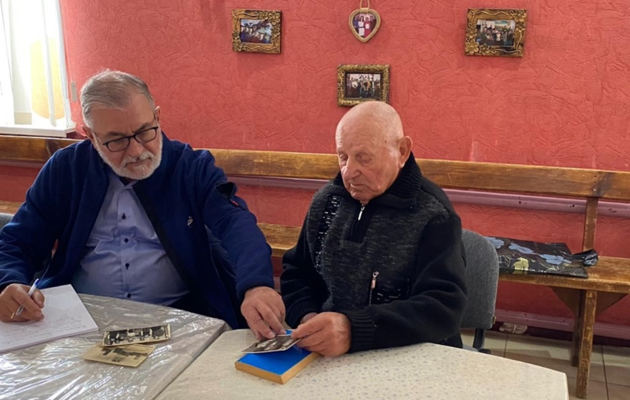
[photo_footer]Nikolai Doroshenko in conversation. [/photo_footer] And he still can’t stop to this day. “I hand out the word of God to my Muslim neighbors, tell them poems and sometimes even sing them a song. I give them a New Testament and say it’s our Quran. And they gladly accept it. Recently I even went to a school for imams. They also accepted my gift, listened to my testimony and then filled my pockets with fruit and bananas.”
Nikolai talked, jumped up in between, recited several spiritual poems and seemed absolutely happy to give us his testimony. And that at 95! When asked if he wasn’t too old for all this, he replied with a look of amazement on his face: “You’re never too old to show people your love. And I’m sure they only let me do it because I’m so old. In our culture, age still counts for a lot.” And then he smiled as if he was proud of his age and also of the acceptance of his testimony among Muslims.
We left the parish hall where we had spoken to him and the old man led us to his bicycle: “This is my car,” he said with a broad smile. “It takes me everywhere where people have not yet heard my testimony. Look at the mountains around Dzigutta. I hiked them all on foot. You just have to have a will and you’ll always get there.”
We left Dzigutta that day, deeply impressed. We had truly met a hero of faith.
The churches in the region have been dreaming of a Bible school for several years. The growing work requires theological knowledge. So far, only a few pastors have been allowed to study theology in Moscow.
The leading men and women of the movement have repeatedly expressed the desire for local training. They have even found a plot of land in a former Mennonite village, where a center could be built.
But apart from a lack of funds, there is a lack of trained coaches. These could come from abroad. We agreed to offer monthly seminars with teachers from Europe and North America from April 2025 on. There are now many Russian-speaking Christians living here who have studied theology at a high level and would certainly be able to help the young churches. I myself would like to be there as long as I am still in good health.
Over the years, the municipalities will then also be able to build an appropriate center and offer a day school.
Our trip to the Caucasus made it abundantly clear: God is extremely active in the Caucasus in calling people to follow Jesus. And the commitment of the local Christians surprised and even shamed me once again. If only we in western Europe were at least as committed to the people as 95-year-old Nikolai Doroshenko from Dzigutta!
But the trip also made it clear how much the first-generation Christians in the Caucasus need our help. And it's not just about money. They lack so much that we have and sometimes no longer even need or require. And they lack knowledge, theological knowledge, for example.
We were supported on our trip by friends from Germany and are now calling on all our friends to consider praying daily for the region and perhaps the projects mentioned. Your support can make a big difference. If the Lord encourages you to do so, please let us know. Please send your financial support to:
Allianzmission (Alliance Mission Germany)
IBAN: DE86452604750009110900
BIC: GENODEM1BFG
Please note: Caucasus
Project name: 513000
Johannes Reimer, professor of Mission Studies and the former director of the Department of Public Engagement of the World Evangelical Alliance (WEA).
1. See: Johannes Reimer: Reaching the peoples of the Caucasus with the Gospel. In: Evangelical Focus, 1.02.2024, https://evangelicalfocus.com/european-perspectives/25300/reaching-the-peoples-of-the-caucasus-with-the-gospel.

Las opiniones vertidas por nuestros colaboradores se realizan a nivel personal, pudiendo coincidir o no con la postura de la dirección de Protestante Digital.
Si quieres comentar o